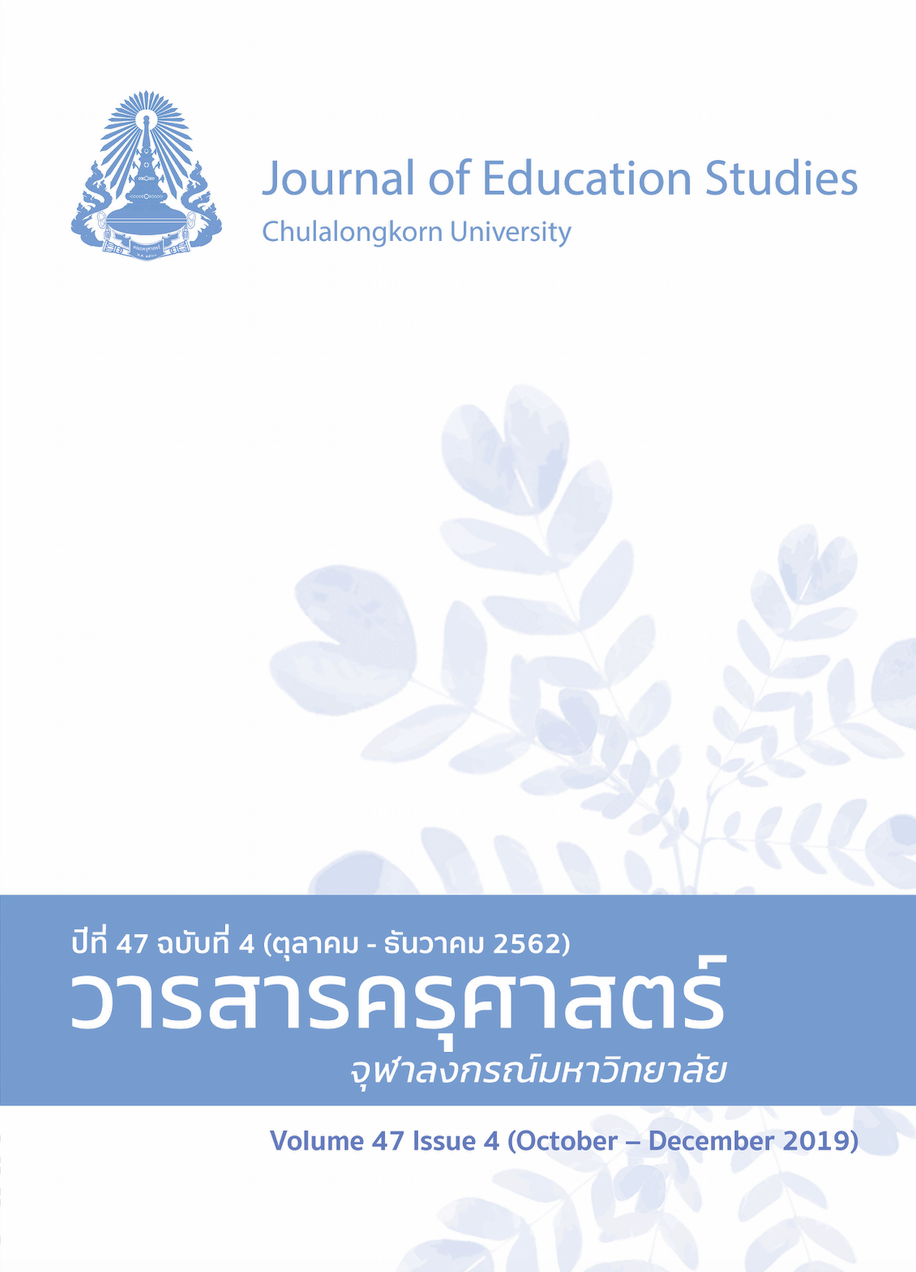The Effect of Buddhist Group Counseling to Develop the Excellent Achievement Motivation for Undergraduate Students
Keywords:
BUDDHIST GROUP COUNSELING, EXCELLENT ACHIEVEMENT MOTIVATION, UNDERGRADUATE STUDENTSAbstract
This study aimed to develop excellent achievement in motivation for undergraduate students by using Buddhist group counseling and to study participants’ experiences that occurred during participation in Buddhist group counseling. The sample consisted of 8 undergraduate students from the Faculty of Humanities and Social Sciences, Rajabhat University, selected by purposive sampling. The instruments in this study were (1) Buddhist Group Counseling Plan, (2) the Excellent Achievement Motivation Test Based on Buddhism, and (3) the structured-interview questions for participants’ experience in the group counseling. Data were analyzed by using Average, Standard Deviation, Wilcoxon signed rank test, and Typological Analysis. The results indicated that the participants had higher post-test scores of the Excellent Motivation Test Based on Buddhism literacy than the pre-test by 05. Moreover, the participants reflected that the Buddhist group counseling process can push them to understand the differences between artificial achievement motivation (Mana), and excellent achievement motivation (Chanta). And they became aware and understood the importance of excellent achievement motivation.
References
จิตตินันท์ บุญสถิรกุล และ วรางคณา โสมะนันทน์. (2561). การพัฒนาแบบวัดแรงจูงใจใฝ่ความเป็นเลิศตามแนวพุทธศาสตร์ สำหรับนักศึกษาระดับอุดมศึกษา (รายงานวิจัย). กรุงเทพฯ: คณะศึกษาศาสตร์ มหาวิทยาลัยเกษตรศาสตร์.
เผยนิสิตนักศึกษา 6.4% พยายามฆ่าตัวตาย. (2562, 14 มีนาคม). กรุงเทพธุรกิจ. สืบค้นจาก http://www.bangkokbiznews.com/news/detail/829634
พระธรรมปิฎก (ป.อ.ปยุตโต). (2541). การศึกษา: เครื่องมือพัฒนาที่ยังต้องพัฒนา (พิมพ์ครั้งที่ 2). กรุงเทพฯ: สหธรรมิก.
พระพรหมคุณาภรณ์ (ป.อ. ปยุตฺโต). (2559). การศึกษา: มองเมื่อ 30 ปีก่อน. กรุงเทพฯ: สหธรรมมิก.
พระพรหมคุณาภรณ์ (ป.อ. ปยุตฺโต). (2555). พุทธธรรม (ฉบับปรับปรุงและขยายความ) (พิมพ์ครั้งที่ 32). กรุงเทพฯ: สหธรรมมิก.
ภทรพ ยุทธาภรณ์พินิจ, ทยณฐ ชวนไชยสิทธิ์, และ ภีรวัฒน์ นนทะโชติ. (2553). การพัฒนาแรงจูงใจใฝ่สัมฤทธิ์ตามแนวคิดของ ป.อ.ปยุตโต. วารสารสุโขทัยธรรมาธิราช, 23(1), 19-32.
อาภา จันทรสกุล. (2550). ทฤษฎีและเทคนิคการปรึกษาในสถาบันการศึกษา (พิมพ์ครั้งที่ 10). กรุงเทพฯ: ภาควิชาจิตวิทยาการศึกษาและการแนะแนว คณะศึกษาศาสตร์ มหาวิทยาลัยเกษตรศาสตร์.
ภาษาอังกฤษ
Atkinson, J. W. (1964). An introduction to motivation. New York: D.V. and Nostrand.
Ayres, L., & Knafle, K. A. 2008. Typological Analysis. In L. M. Given (Ed.), Sage encyclopedia of qualitative research methods (pp. 900-901). Thousand Oaks, CA: Sage.
Corey, G. (2013). Theory and practice of counseling and psychotherapy (9th ed.). Pacific Grove, CA: Brooks/Cole.
Eccles, J. S. (1993). School and family effects on the ontogeny of children’s interests, self-perceptions, and activity choice. In J. Jacobs (Ed.), Nebraska symposium on motivation, 1992: Developmental perspectives on motivation (pp. 145–208). Lincoln: University of Nebraska Press.
Jacobs, E. E., Masson, R. L., & Harvill, R. L. (2009). Group counseling: Strategies and skills. Australia: Thomson/Brooks/Cole.
McClelland, D. C. (1987). Characteristics of successful entrepreneurs. Journal of Creative Behavior, 21(3), 219–233.
Yalom, I. D. (1995). The theory and practice of group psychotherapy (4th ed.). New York: Basic Books.
Zuleica, R. A., & Jaime, L. (2017). Passion for math: Relationships between teachers’ emphasis on class contents usefulness, motivation and grades. Contemporary Educational Psychology, 51(1), 284-292.




